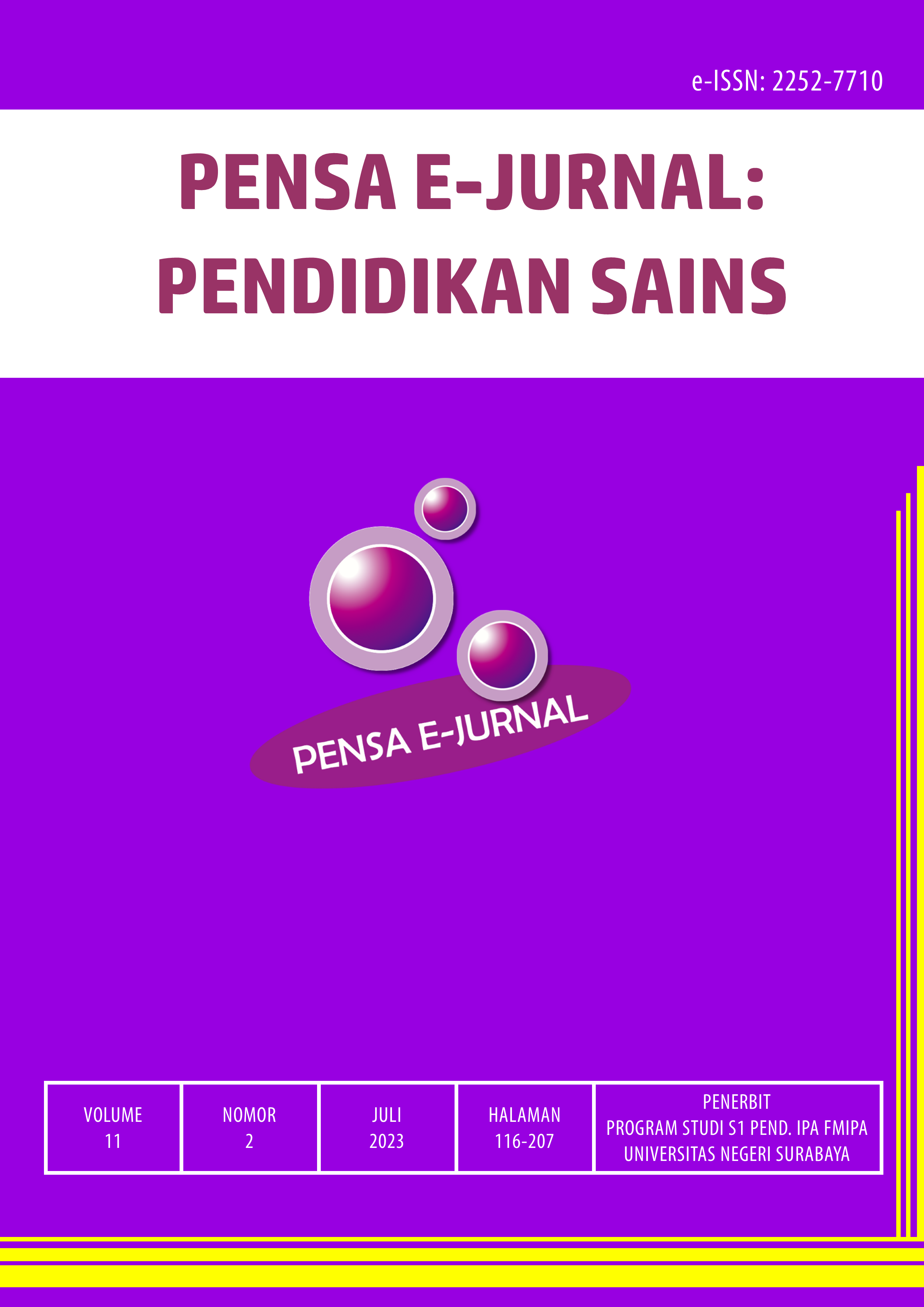ANALISIS AKTIVITAS BELAJAR SISWA DENGAN MODEL PEMBELAJARAN CONTEXTUAL TEACHING AND LEARNING DIPADUKAN DENGAN GAME BASED LEARNING
DOI:
https://doi.org/10.26740/pensa.v11i2.54710Keywords:
contextual teaching and learning, game based learningDownloads
Download data is not yet available.
Downloads
Published
2023-07-31
How to Cite
Pebrianti, P., Qosyim, A., & Mahdiannur, M. A. (2023). ANALISIS AKTIVITAS BELAJAR SISWA DENGAN MODEL PEMBELAJARAN CONTEXTUAL TEACHING AND LEARNING DIPADUKAN DENGAN GAME BASED LEARNING. PENSA E-JURNAL: PENDIDIKAN SAINS, 11(2), 201–207. https://doi.org/10.26740/pensa.v11i2.54710
Issue
Section
Articles
 Abstract views: 151
,
Abstract views: 151
, PDF Downloads: 221
PDF Downloads: 221

















